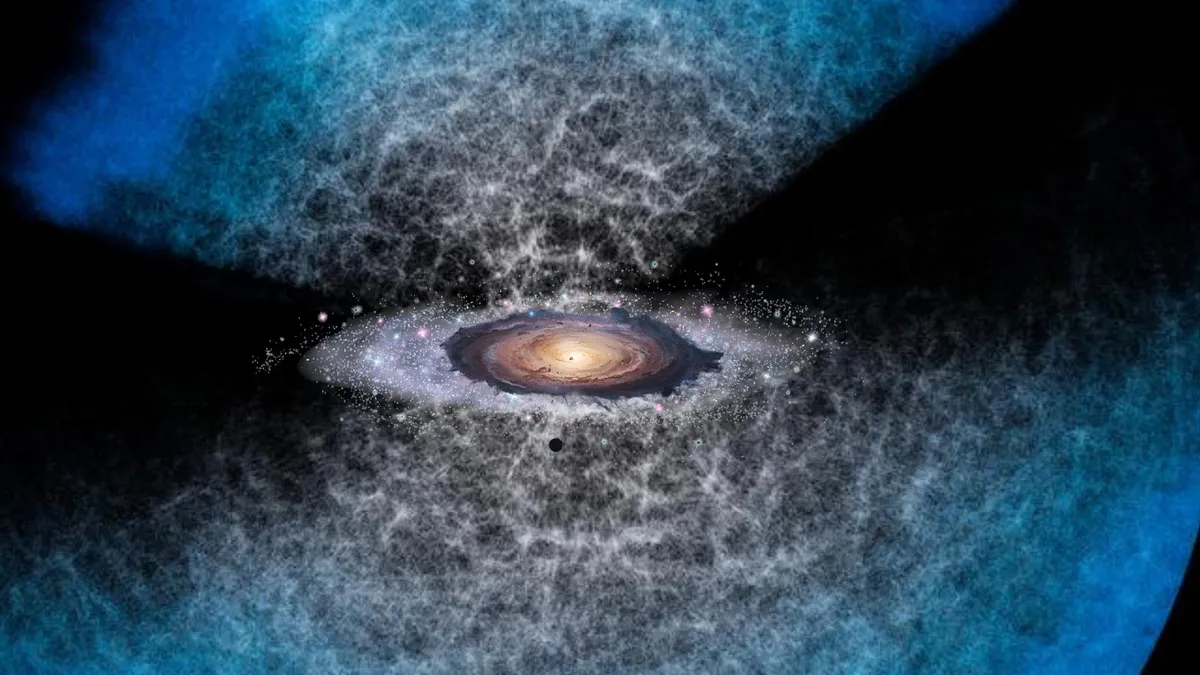
In a groundbreaking study, researchers have provided surprising insights into the nature of dark energy, suggesting that this enigmatic force may no longer be driving the expansion of the universe at an accelerating rate. Contrary to the widely accepted belief that dark energy continuously accelerates cosmic expansion, this new research indicates that the expansion may have already begun to slow down.
This significant finding not only challenges current cosmological models but also raises intriguing possibilities about the ultimate fate of our universe. If dark energy is indeed weakening, the next phase could lead to a contraction of space, potentially culminating in a Big Crunch scenario—an event reminiscent of the Big Bang but in reverse. The researchers involved in this study herald it as a possible paradigm shift in our understanding of the cosmos.
Young-Wook Lee, the team leader from Yonsei University in South Korea, stated, "Our study shows that the universe has already entered a phase of decelerated expansion at the present epoch and that dark energy evolves with time much more rapidly than previously thought." Should these findings be validated, it would represent a monumental shift in cosmology, especially considering the discovery of dark energy was made just 27 years ago.
The concept of dark energy was first proposed in 1998 when astronomers observed distant Type Ia supernovae—known as standard candles due to their consistent brightness. These observations revealed that the farther a galaxy is, the faster it appears to be receding. This led to the conclusion that the universe's expansion is accelerating, a discovery that earned the researchers the Nobel Prize in Physics in 2011.
Despite decades of research, scientists have struggled to definitively identify what dark energy is. However, it is currently understood to account for approximately 68% of the universe's total energy-matter budget. Research indicates that dark energy has not always been the dominant force; it began to influence the universe's expansion around 5 billion years ago, approximately 9 billion years after the Big Bang.
New evidence questioning the dominance of dark energy has emerged from recent findings by the Dark Energy Spectroscopic Instrument (DESI). In Spring 2024, Lee and his colleagues discovered that Type Ia supernovae might not be as standard as previously thought. They found that the brightness of these supernovae could be significantly influenced by the age of their progenitor stars, leading to variations in observed luminosity.
By analyzing a sample of 300 galaxies, the research team established a 99.99% probability that the dimming of distant Type Ia supernovae is influenced not only by cosmic expansion effects but also by stellar characteristics. This corrective approach challenges the currently accepted cosmological model, known as the Lambda Cold Dark Matter (LCDM) model, which relies heavily on the concept of dark energy.
The pivotal conclusion of this research is that the universe is not expanding at an accelerating pace but has already entered a deceleration phase. This finding goes beyond the hints of weakening dark energy indicated by DESI. While DESI's results suggested future deceleration, Lee's analysis proposes that this deceleration is occurring currently.
The research team plans to confirm these results with an evolution-free test that will exclusively utilize young Type Ia supernovae from younger galaxies across various distances. The Vera C. Rubin Observatory, equipped with the world's largest digital camera and located atop Cerro Pachón in Chile, is set to play a crucial role in this ongoing investigation. Over the next five years, it is expected to discover more than 20,000 new supernova host galaxies, providing critical age measurements to enhance our understanding of supernova cosmology, as stated by Chul Chung, a fellow researcher at Yonsei University.